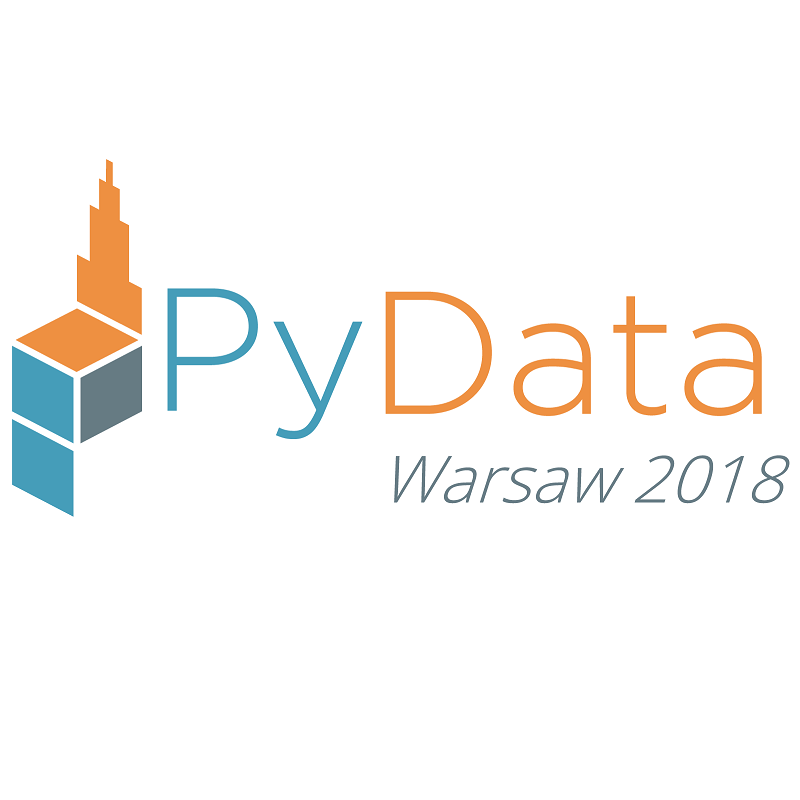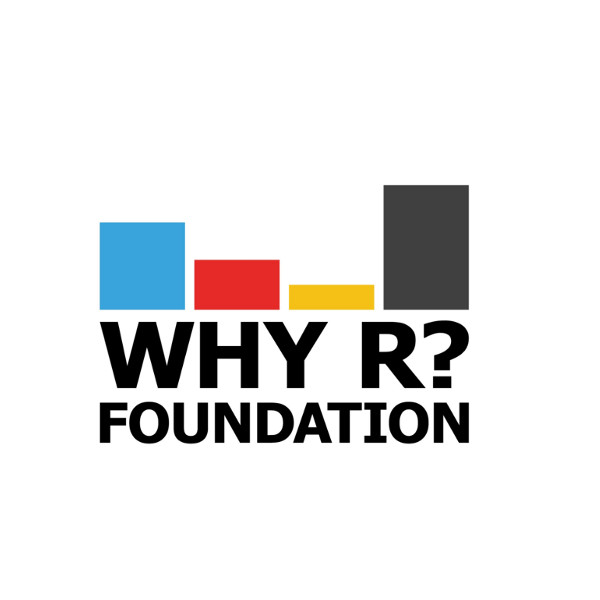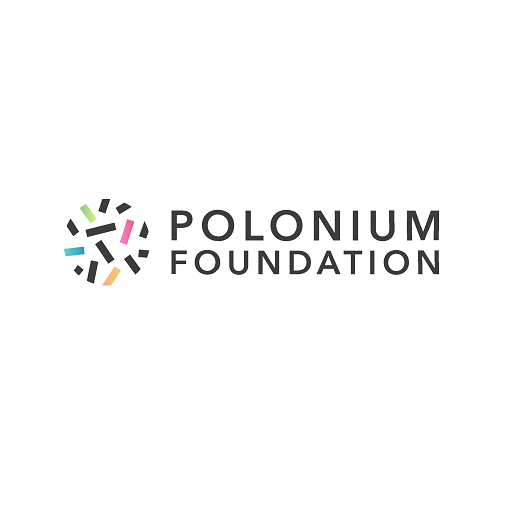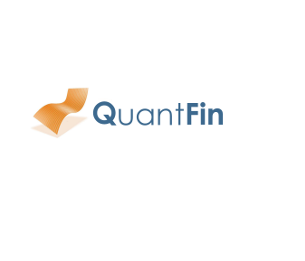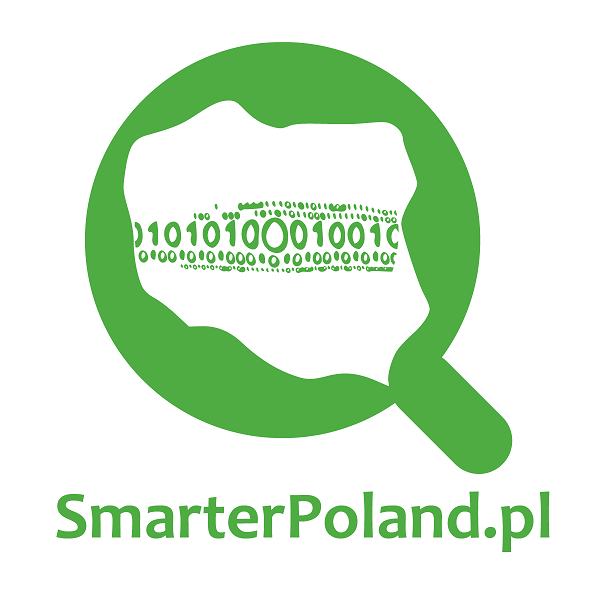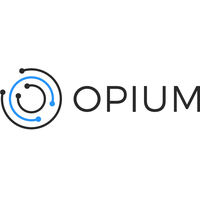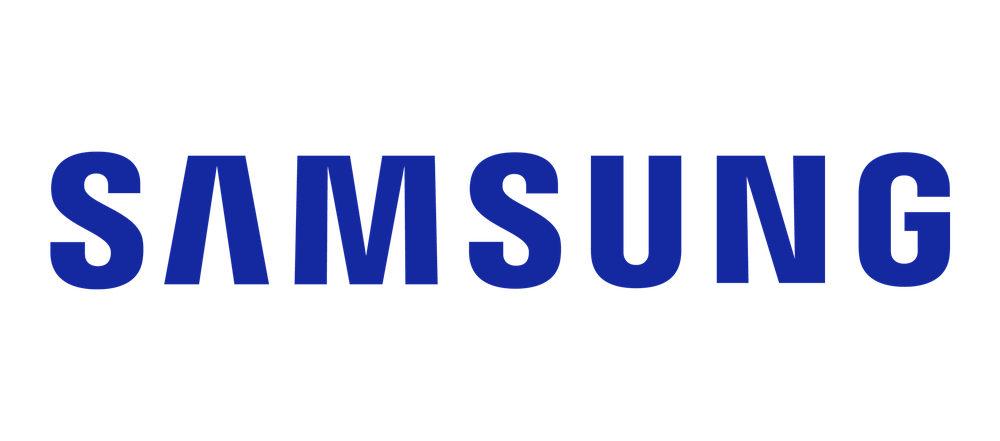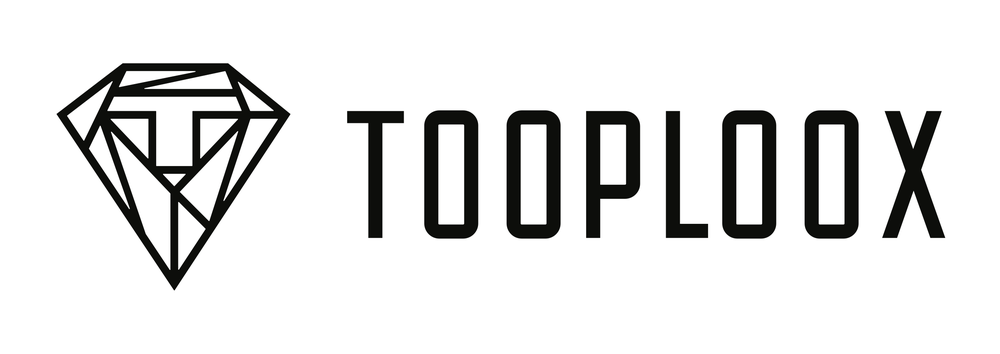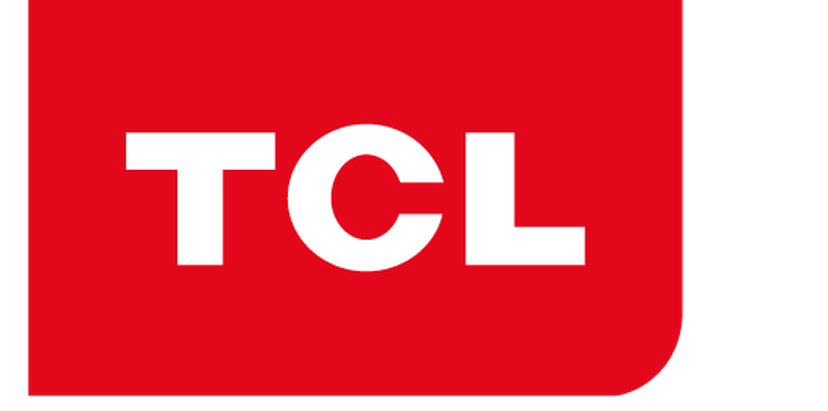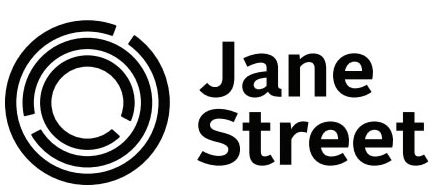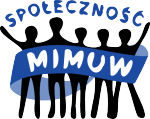
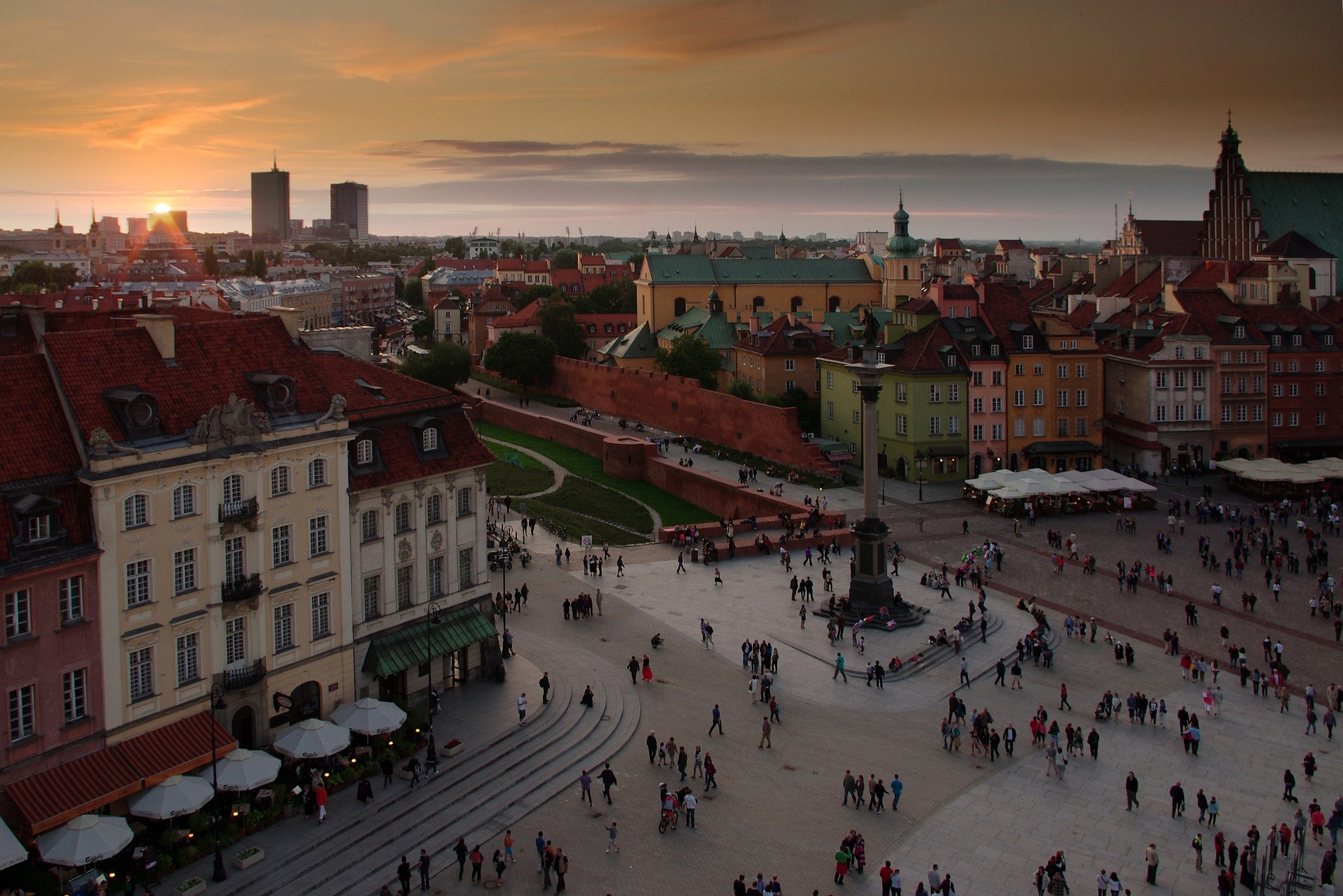
PL in ML
Polish View on Machine Learning
Warsaw, 14 - 17.12.2018
21 days left
PL in ML is a conference whose main purpose is to foster a growing knowledge of great achievements of Poles in machine learning. We believe that it can inspire people to develop their own career path. Apart from that, our mission is to bring together a community of people who are interested in the field.
Brilliant talks performed by specialists
Various background, various opinions
Learn and discover
Call for Posters, excellent talks and more
All attendants can speak!
Get a free entry and share your research during Call for Posters
Meet the community!
Get in touch with other machine learning people
Piotr Mirowski is a Senior Research Scientist working in the Deep Learning department at DeepMind, focusing on navigation-related research and in scaling up agents to real world environments. Piotr studied computer science in France (ENSEEIHT, Toulouse) and obtained his PhD in computer science in 2011 at New York University, with a thesis on “Time Series Modeling with Hidden Variables and Gradient-based Algorithms” supervised by Prof. Yann LeCun (Outstanding Dissertation Award, 2011). Prior to joining DeepMind, Piotr worked at Schlumberger Research, at the NYU Comprehensive Epilepsy Center, at Bell Labs and at Microsoft Bing, on problems including geostatistics, geological image processing, epileptic seizure prediction from EEG, WiFi-based geolocalisation, robotics, NLP and search query auto-completion. In his spare time, Piotr performs theatre and improv, with or without robots on the stage, and investigates the use of AI for artistic human and machine-based co-creation.
Piotr Mirowski is a Senior Research Scientist working in the Deep Learning department at DeepMind, focusing on navigation-related research and in scaling up agents to real world environments. Piotr studied computer science in France (ENSEEIHT, Toulouse) and obtained his PhD in computer science in 2011 at New York University, with a thesis on “Time Series Modeling with Hidden Variables and Gradient-based Algorithms” supervised by Prof. Yann LeCun (Outstanding Dissertation Award, 2011). Prior to joining DeepMind, Piotr worked at Schlumberger Research, at the NYU Comprehensive Epilepsy Center, at Bell Labs and at Microsoft Bing, on problems including geostatistics, geological image processing, epileptic seizure prediction from EEG, WiFi-based geolocalisation, robotics, NLP and search query auto-completion. In his spare time, Piotr performs theatre and improv, with or without robots on the stage, and investigates the use of AI for artistic human and machine-based co-creation.
Piotr Bojanowski is a research scientist at Facebook AI Research, working on machine learning applied to computer vision and natural language processing. His main research interest revolve aground large scale unsupervised learning. Before joining Facebook, in 2016, he got a PhD in Computer Science at the Willow team (INRIA Paris) under the supervision of Jean Ponce, Cordelia Schmid, Ivan Laptev and Josef Sivic. He graduated from Ecole polytechnique in 2013 and received a Masters Degree in Mathematics, Machine Learning and Computer Vision (MVA).
Piotr Bojanowski is a research scientist at Facebook AI Research, working on machine learning applied to computer vision and natural language processing. His main research interest revolve aground large scale unsupervised learning. Before joining Facebook, in 2016, he got a PhD in Computer Science at the Willow team (INRIA Paris) under the supervision of Jean Ponce, Cordelia Schmid, Ivan Laptev and Josef Sivic. He graduated from Ecole polytechnique in 2013 and received a Masters Degree in Mathematics, Machine Learning and Computer Vision (MVA).
Wojciech Czarnecki is a Jagiellonian University graduate, holding a Phd degree from Faculty of Mathematics and Computer Science, awarded for work in the intersection of information theory and machine learning, done under supervision of prof. Jacek Tabor. While in Cracow, he became one of the initial members of GMUM (Special Interest Group on Machine Learning, located in Cracow, Lesser Poland), lead by prof. Jacek Tabor and dr hab. Igor Podolak. Currently, he holds a position of Senior Research Scientist at DeepMind, London AI company, best known for their achievements in the field of Deep Reinforcement Learning such as Deep Q-Networks and AlphaGo. His current research focuses on Multi-agent Deep Reinforcement Learning (MADRL), with most notable recent work on Capture the Flag project co-lead with Max Jaderberg and Iain Dunning.
Wojciech Czarnecki is a Jagiellonian University graduate, holding a Phd degree from Faculty of Mathematics and Computer Science, awarded for work in the intersection of information theory and machine learning, done under supervision of prof. Jacek Tabor. While in Cracow, he became one of the initial members of GMUM (Special Interest Group on Machine Learning, located in Cracow, Lesser Poland), lead by prof. Jacek Tabor and dr hab. Igor Podolak. Currently, he holds a position of Senior Research Scientist at DeepMind, London AI company, best known for their achievements in the field of Deep Reinforcement Learning such as Deep Q-Networks and AlphaGo. His current research focuses on Multi-agent Deep Reinforcement Learning (MADRL), with most notable recent work on Capture the Flag project co-lead with Max Jaderberg and Iain Dunning.
Mateusz Malinowski is a Research Scientist at DeepMind. His work concerns Computer Vision and Natural Language Understanding, all 'spiced up' with Deep Learning. He has contributed towards various areas of Computer Vision, namely: Representation Learning, Image Recognition, and Image-to-Text Retrieval. His main contribution is, however, creating foundations and first methods that answer questions about images (Visual Question Answering). This work has gained a wide recognition in the research community. Mateusz has received PhD (summa cum laude) from Max Planck Institute for Informatics, and Saarland University, and received multiple rewards: Dr.-Eduard-Martin Dissertation for the outstanding PhD candidate at Saarland University, and DAGM MVTec for the outstanding dissertation in Machine Learning, Computer Vision, and Pattern Recognition in Germany / Austria / Switzerland.
Mateusz Malinowski is a Research Scientist at DeepMind. His work concerns Computer Vision and Natural Language Understanding, all 'spiced up' with Deep Learning. He has contributed towards various areas of Computer Vision, namely: Representation Learning, Image Recognition, and Image-to-Text Retrieval. His main contribution is, however, creating foundations and first methods that answer questions about images (Visual Question Answering). This work has gained a wide recognition in the research community. Mateusz has received PhD (summa cum laude) from Max Planck Institute for Informatics, and Saarland University, and received multiple rewards: Dr.-Eduard-Martin Dissertation for the outstanding PhD candidate at Saarland University, and DAGM MVTec for the outstanding dissertation in Machine Learning, Computer Vision, and Pattern Recognition in Germany / Austria / Switzerland.
Marek Kowalski is a Scientist in the Microsoft's Cognition team in Cambridge, where he works on HoloLens. He is also finalizing his PhD candidacy at the Warsaw University of Technology in Poland, advised by professor Wladyslaw Skarbek. Marek's dissertation is about robust methods for facial landmark localization (face alignment), his main research interests are in computer vision and machine learning applied to computer vision. In 2016 and 2017 Marek was an intern at Microsoft Research in Redmond, where he worked on 3D reconstruction for telepresence on Microsoft HoloLens (Holoportation). In the past he also worked on 3D reconstruction using multiple Kinect sensors and on face recognition. To see some of the projects Marek worked on, visit his GitHub page.
Marek Kowalski is a Scientist in the Microsoft's Cognition team in Cambridge, where he works on HoloLens. He is also finalizing his PhD candidacy at the Warsaw University of Technology in Poland, advised by professor Wladyslaw Skarbek. Marek's dissertation is about robust methods for facial landmark localization (face alignment), his main research interests are in computer vision and machine learning applied to computer vision. In 2016 and 2017 Marek was an intern at Microsoft Research in Redmond, where he worked on 3D reconstruction for telepresence on Microsoft HoloLens (Holoportation). In the past he also worked on 3D reconstruction using multiple Kinect sensors and on face recognition. To see some of the projects Marek worked on, visit his GitHub page.
Karol Hausman is a Research Scientist at Google Brain in Mountain View, California working on robotics and machine learning. He is interested in enabling robots to autonomously acquire general-purpose skills with minimal supervision in real-world environments. His current research investigates interactive perception, deep reinforcement learning and imitation learning and their applications to robotics. He has evaluated his work on many different platforms including quadrotors, humanoid robots and robotic arms. He received his PhD in CS from the University of Southern California in 2018, MS from the Technical University Munich in 2013 and MEng from the Warsaw University of Technology in 2012. During his PhD, he did a number of internships at Bosch Research Center (2013 and 2014), NASA JPL (2015), Qualcomm Research (2016) and Google DeepMind (2017).
Karol Hausman is a Research Scientist at Google Brain in Mountain View, California working on robotics and machine learning. He is interested in enabling robots to autonomously acquire general-purpose skills with minimal supervision in real-world environments. His current research investigates interactive perception, deep reinforcement learning and imitation learning and their applications to robotics. He has evaluated his work on many different platforms including quadrotors, humanoid robots and robotic arms. He received his PhD in CS from the University of Southern California in 2018, MS from the Technical University Munich in 2013 and MEng from the Warsaw University of Technology in 2012. During his PhD, he did a number of internships at Bosch Research Center (2013 and 2014), NASA JPL (2015), Qualcomm Research (2016) and Google DeepMind (2017).
Mateusz Tarkowski is a senior data scientist at The Boston Consulting Group, where he develops advanced analytical tools to help tackle BCG clients' most pressing and difficult business problems. In his work, he has used techniques from machine learning and mathematical optimization to solve strategic and operational issues in the consumer goods sector. Mateusz received his Bachelor and Master’s degrees in computer science from the University of Warsaw, and his DPhil (PhD) degree at the University of Oxford. His research focuses on applying methods from cooperative game theory to network science problems, such as network centrality and link prediction.
Mateusz Tarkowski is a senior data scientist at The Boston Consulting Group, where he develops advanced analytical tools to help tackle BCG clients' most pressing and difficult business problems. In his work, he has used techniques from machine learning and mathematical optimization to solve strategic and operational issues in the consumer goods sector. Mateusz received his Bachelor and Master’s degrees in computer science from the University of Warsaw, and his DPhil (PhD) degree at the University of Oxford. His research focuses on applying methods from cooperative game theory to network science problems, such as network centrality and link prediction.
Jan Madey
Jan Madey, M.Sc., Ph.D., D.Sc. Full professor of Computer Science at the Faculty of Mathematics, Informatics and Mechanics of the University of Warsaw, a past Vice-Rector at the University.
Read more
Jacek Tabor
Jacek Tabor in his scientific work deals with broadly understood machine teaching, in particular with deep generative models. He is also a member of the GMUM group (gmum.net) aimed at popularization and development of machine learning methods in the Cracow.
Read more
Krzysztof Geras
Krzysztof is an assistant professor at NYU. His main interests are in unsupervised learning with neural networks, model compression, transfer learning, evaluation of machine learning models and applications of these techniques to medical imaging. He previously did a postdoc at NYU with Kyunghyun Cho, a PhD at the University of Edinburgh with Charles Sutton and an MSc as a visiting student at the University of Edinburgh with Amos Storkey.
Read more
Krzysztof Choromanski
Krzysztof Choromanski is a research scientist at Google Brain Robotics Team in New York. He works on several topics in robotics and machine learning including: reinforcement learning, evolution strategies, structured random matrices (for such applications as scalable kernel methods and compact architectures for RL policies) as well as quasi-Monte Carlo methods.
Read more
Henryk Michalewski
Henryk Michalewski obtained his PhD in Mathematics and Habilitation in Computer Science from the University of Warsaw. Henryk spent a semester in the Fields Institute, was a postdoc at the Ben Gurion University in Beer-Sheva and a visiting professor in the École normale supérieure de Lyon. He was working on topology, determinacy of games, logic and automata.
Read more
Piotr Miłoś
Piotr Miłoś is an Associate Professor at the Faculty of Mathematics, Mechanics and Computer Science of the University of Warsaw. He received his Ph.D. in probability theory. From 2016 he has developed interest in machine learning. Since then he collaborated with deepsense.ai on various research projects. His focus in on problems in reinforcement learning. These include developing new training algorithm (like hierarchical learning), applying reinforcement learning to real life problem and the so-called model based reinforcement learning.
Read more
Marek Cygan
Marek Cygan was doing research on the theory of algorithms for many years. He did his scientific internships at University of Maryland, College Park and University in Lugano.Recently, however, he has switched to machine learning. In 2017, he co-founded a startup NoMagic.AI which focuses on AI for robotics.
Read more
Przemysław Biecek
Przemysław Biecek obtained his Ph.D. in Mathematical Statistics and MSc in Software Engineering at Wroclaw University of Science and Technology. He is currently working as an Associate Professor at the Faculty of Mathematics and Information Science, Warsaw University of Technology, and an Assistant Professor at the Faculty of Mathematics, Informatics and Mechanics, University of Warsaw. His research activities are mainly focused on high-throughput genetic profiling in oncology.
Read more
Krzysztof Dembczyński
Krzysztof Dembczyński is an assistant professor at Poznan University of Technology. He received his Ph.D. and Habilitation degrees in computer science from the same university. As a post-doctoral researcher he spent two years from 2009 to 2011 in the Knowledge Engineering & Bioinformatics Lab at Marburg University.
Read more
Tomasz Trzciński
Tomasz Trzciński is an Assistant Professor in the Division of Computer Graphics in the Institute of Computer Science at Warsaw University of Technology. He obtained his Ph.D. in Computer Vision at École Polytechnique Fédérale de Lausanne. He has (co)-authored several papers and serves as a reviewer in prestigious computer science conferences (CVPR, ECCV, NIPS) and journals (TPAMI, TIP, TMM, PRL). He worked at Google, Qualcomm Corporate R&D and Telefónica R&D.
Read more
Jan Chorowski
Jan Chorowski is an Associate Professor at Faculty of Mathematics and Computer Science at Wrocław University of Technology. He received his M.Sc. degree in electrical engineering from Wrocław University of Technology and PhD from University of Louisville
Read more
| Early Birds Registration | Regular Registration |
|---|---|
| Based on the application form | First come, first serve manner |
| Delayed notification of acceptance | Immediate results |
| 100 PLN for students, 200 PLN otherwise | 150 PLN for students, 400 PLN otherwise |
| 50 PLN for workshop participation (non-obligatory). | 100 PLN for workshop participation (non-obligatory). |
| Call for Posters participation possibility | - |
| Greater chance for a workshop participation | - |
All machine learning enthusiasts were encouraged to submit their poster proposals about the machine learning research. 48 accepted posters were presented durign Young Researchers Session that was held on Saturday evening (15.12) during the PL in ML conference. The session aimed at providing a vibrant place for discussing potential and ongoing research in any stage, from idea to results.
During the session, members our scientific committee and conference participants each chose the best poster, whose authors received a prize. The Best Poster award from our scientific committee obtained poster Learning to be Interpretable by Katarzyna Janocha. The Audience award was granted to poster Auditor: Visual Validation of Predictive Models by Alicja Gosiewska and Agnieszka Ciepielewska.
The full list of posters presented during Young Researcher Session can be found here.
On Monday (17.12.2018) the conference participants had a chance to attend one of the six full-day practical workshops. The list of conducted workshops along with the tutors:
- Practical Aspects of Generative Models - Wojciech Stokowiec (Polish-Japanese Academy of Information Technology, Tooploox), Maciej Zięba (Wroclaw University of Science and Technology, Tooploox), Maciej Zamorski (Wroclaw University of Science and Technology, Tooploox)
- From training to inference: Creating an end-end Deep Learning project using optimized hardware and software from Intel - Patryk Miziuła, Szymon Nakoneczny (DeepSense.ai)
- Bayesian Deep Learning: How to be certain about uncertainty - Marcin Możejko, Mateusz Susik, Rafał Karczewski (Sigmoidal)
- Deep Learning for Self-Driving Cars - Karol Majek (NASK)
- Deep processing of structured data: Texts and images - Marek Śmieja, Łukasz Struski, Łukasz Maziarka, Aleksandra Nowak (Group of Machine Learning Research at the Jagiellonian University)
- Tutorial on ConversationalAI - Paweł Budzianowski (University of Cambridge), Ivan Vulić (University of Cambridge), Iñigo Casanueva (PolyAI)
Detailed Workshops Agenda can be found here.
About us
We are a group of young Machine Learning enthusiasts who are committed to spreading the knowledge about the discipline. Each organizer has background in Mathematics, Informatics or Physics and most of them is closely related to MIMUW faculty. One year ago, we gathered in the faculty to organize a conference that could bring people interested Machine Learning together.
Agnieszka Sitko | Michał Zmysłowski |
Konrad Czechowski | Tomasz Wąs |
Piotr Kozakowski | Aleksandra Możejko |
Aleksander Buła | Piotr Styczyński |
Magdalena Grodzińska | Michał Filipiuk |
Jan Sosnowski | Mateusz Macias |
Kamil Bladoszewski | Mateusz Masiak |
Mateusz Olko | Jan Zyśko |
Mateusz Kobak | Michał Królikowski |
Łukasz Pszenny | Jakub Józefowicz |
Piotr Węgrzyn | Bartłomiej Kielak |
Adam Goliński | Marcin Kosiński |
Krzysztof Smutek | Agnieszka Strzałka |
